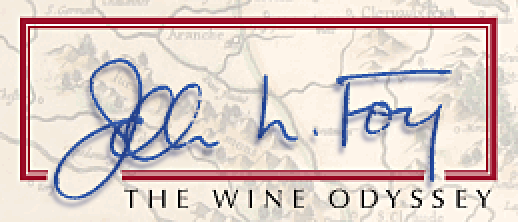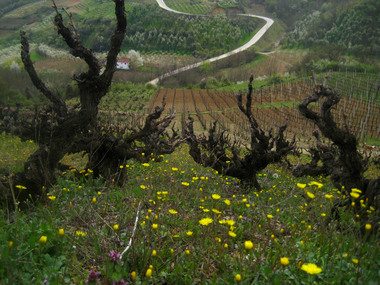Part of the fun of the wine world is the exploring and learning, and both meet at the intersection of Vino Budimir.
In February, I sat across the table from Alexander Raskovic. Between us were a selection of Serbian wines from a wine culture that dates back thousands of years.
Raskovic married into a family that spans six generations of winemaking in the Zupa region, the central part of Serbia, and the vineyards extend from recently planted to those more than a century old. Serbia’s vineyards date from the ancient Greeks, and Raskovic’s cellar holds a diploma from the 19th-century Serbian King Milan Obrenovic attesting to the family’s wines more than 130 years ago.
His wife’s grandfather Budimir Zdravkovic has made more than 70 vintages and continues to make wine, Raskovic said as he poured the 2008 Margus Margi Riesling.
The wine follows the traditional method of maceration for three weeks with the grapes’ skins and aged for three years in large old Serbian oak barrels and one year in bottle, he told me as I inhaled the pronounced floral and fruit scents and tasted the fruit flavors and the dry, balanced finish.
The wine, named for Margus, a Serbian city during the Roman Empire, is not filtered, and fermentation starts from the natural yeasts on the grapes. It retails for about $19, a good value when compared to German and Alsatian Rieslings.
My next glass contained the 2007 Triada, whose name comes from the Greek word for trinity and is the motto of Vino Budimir, “my land, my family, my wine.” The clear red wine is made from 92 percent prokupac, an indigenous grape, and 8 percent merlot, and is aged in a mix of older large French and Serbian oak barrels for four years and one more in bottle.
Its waft of red fruit and herbal scents were followed by blackberry and black cherry flavors that slid on soft tannins across my palate, with no alcohol aftertaste as in so many New World wines. The 2007 Triada is also about $19.
Vino Budimir put its wine toe into the modern age with the 2007 Svb Rosa, or “under the rose,” a blend of 60 percent prokupac and 40 percent cabernet sauvignon. It’s darker than the Triada and has the cedar scent that is a marker of new French oak barrels. Raskovic reports that the pungent blackberry flavor comes from the grapes of 80-to 100-year- old vines.
I was pleased that the Old World was still present in the medium body and the controlled use of new oak barrels. The wine is not filtered, and this is the first vintage of Svb Rosa, which I think bridges Serbian and New World winemaking. The toll is about $40, which is a modest price for a pleasing trip.


Leave A Comment